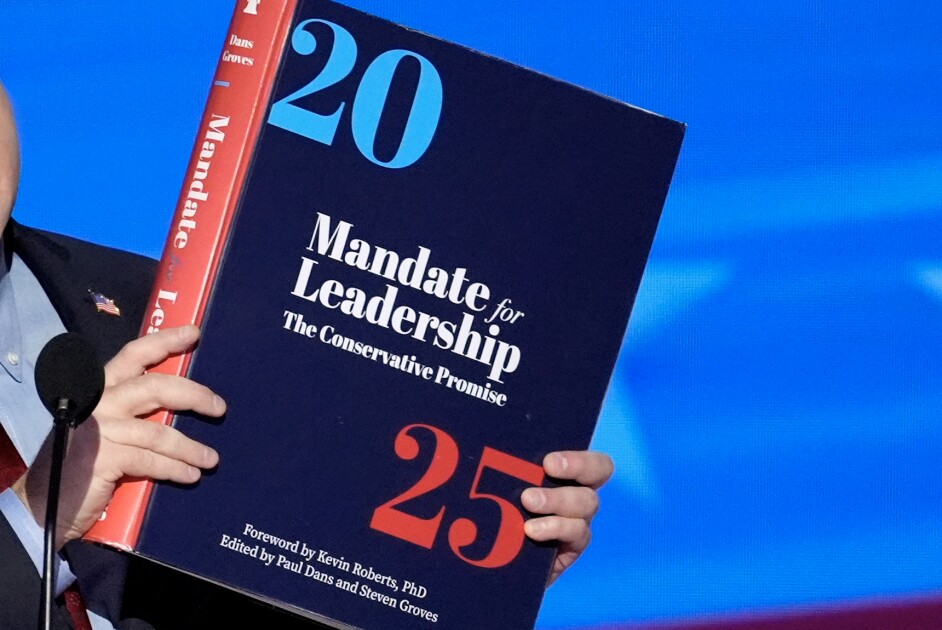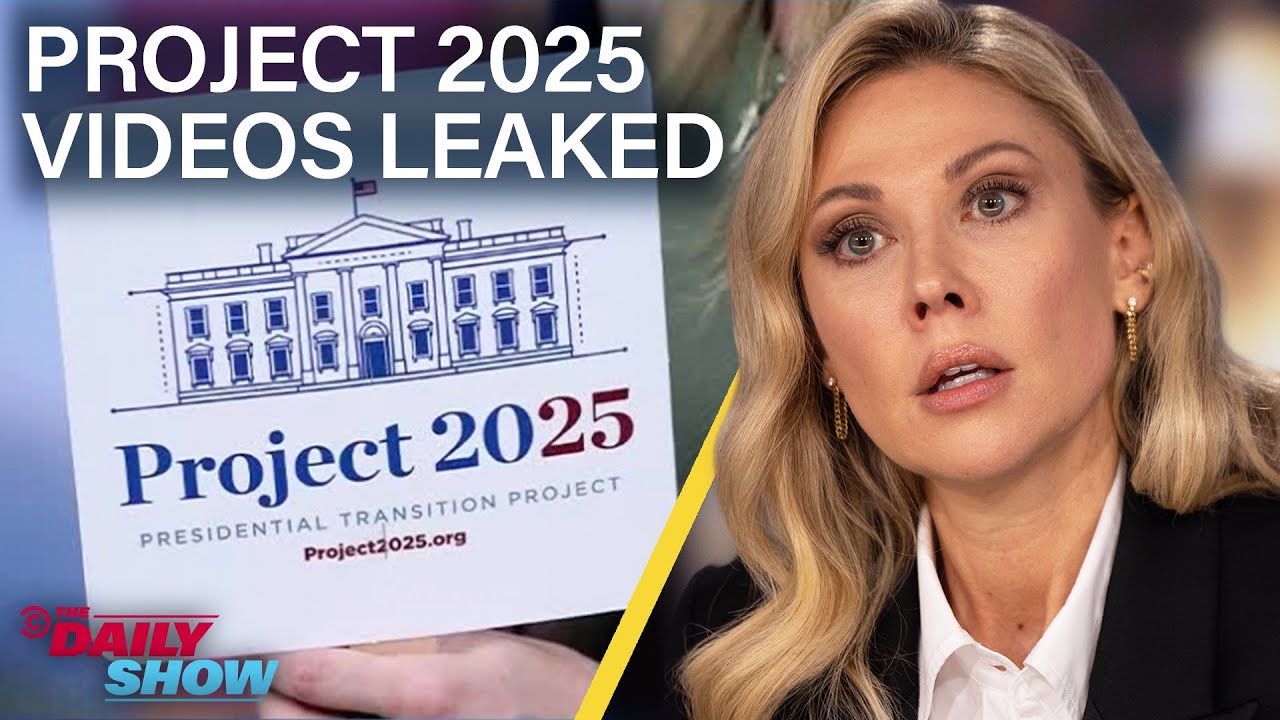Originally at edweek.org
The U.S. Department of Education has hired a Project 2025 author whose chapter of the conservative policy document proposed dismantling the federal agency, phasing out Title I funding for schools, and scaling back other federal involvement in education.
Lindsey Burke will join the Education Department as deputy chief of staff for policy and programs, the department announced late last week. Burke arrives after 17 years at the Heritage Foundation, a conservative think tank that published the 900-page Project 2025 policy blueprint that became a major source of debate during the 2024 presidential campaign.
As director of the group’s center for education policy, Burke wrote a 44-page chapter on what a conservative president should do with the Department of Education. Her appointment comes as Trump has already begun to embrace plans outlined in the document.
Though he spent the campaign attempting to distance himself from it, at one point calling the document “absolutely ridiculous and abysmal,” several of its authors are working in his administration. The agenda also articulates a number of education policies Trump has so far followed.
Burke’s chapter on the Education Department proposes a seismic overhaul of the federal education infrastructure—converting funding for students with disabilities and students from low-income communities, the two largest sources of federal education money, to “no-strings-attached” block grants to states that could even flow directly to parents to spend outside of public schools; moving the department’s various services to other federal agencies; and using federal funds to expand school choice.
Project 2025 proposes eliminating Title I grants to states—currently an $18.4 billion funding stream that flows to most schools—after a decade.
In a 2024 interview with Rick Hess, the director of education policy studies at the American Enterprise Institute and an Education Week opinion contributor, Burke said Project 2025 sought to reshape education by making federal investments more accountable—arguing that the federal government isn’t held accountable when systems fall short.
“Providers are simply not held accountable to the people they’re supposed to serve,” she said. “The reforms we outline would recalibrate accountability so that it is directed horizontally to parents and taxpayers rather than vertically to Washington.”
Burke argued abolishing the department wouldn’t mean getting rid of key civil rights protections for students, but “the removal of myriad ineffective programs and inflationary spending”—something Education Secretary Linda McMahon has repeated in appearances before lawmakers.
Burke—who previously worked as a fellow at school choice advocacy group EdChoice and on a number of advisory boards regarding education—has penned numerous education policy reports.
Proposals authored by Burke—such as offering school vouchers to military families and overturning or challenging the landmark U.S. Supreme Court ruling that protects undocumented families’ right to a free public education—have been championed by conservative lawmakers, even if they don’t appear in the controversial white paper itself.
Heritage Foundation president Kevin Roberts called Burke “the intellectual backbone of the school choice movement” and “one of the most respected, principled, and effective leaders in the conservative movement.” He said in a statement that her Education Department appointment was “a landmark victory for American education.”
What Trump has already done from Project 2025
Some of Burke’s proposals have already begun to filter into education policy during Trump’s second term.
Trump signed an executive order calling on McMahon to “facilitate” the closure of the Education Department. He rescinded a longstanding memo that largely prevented immigration agents from carrying out arrests and raids at schools and bus stops. He rolled back protections for transgender students under Title IX, the federal anti-sex discrimination law, and made it U.S. policy to only recognize two sexes.
He is also pushing to expand school choice within the limits of his executive authority, including by directing the secretaries of defense and the interior to develop plans for expanding choice at the school systems they oversee.
Both Trump and McMahon have floated other ideas that align with the Project 2025 blueprint—like moving oversight of the Individuals with Disabilities Education Act to the U.S. Department of Health and Human Services and the office for civil rights to the U.S. Department of Justice.
Burke told Hess in 2024 that the white paper “provides a menu of options” for building on Trump’s first term.
“[S]everal Republican presidents have taken and implemented our policy suggestions,” Burke said in the interview. “We remain true to that mission and will continue to offer policy recommendations to conservative administrations, but it is ultimately up to the president to decide which policies to implement.”
Read the Original Story





